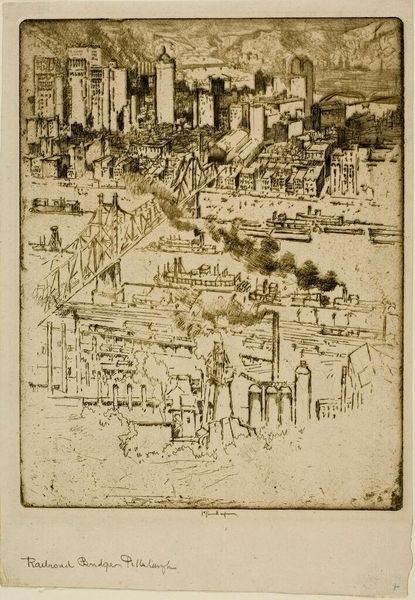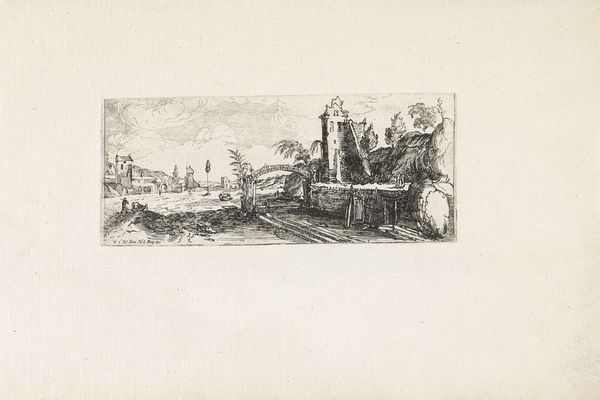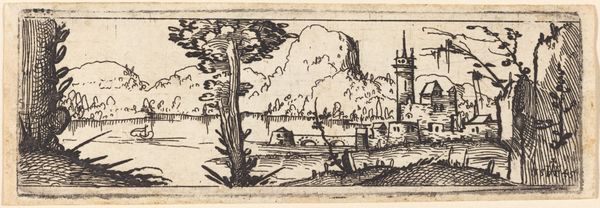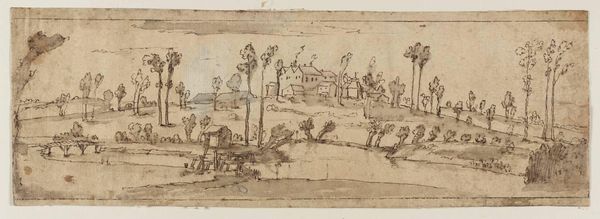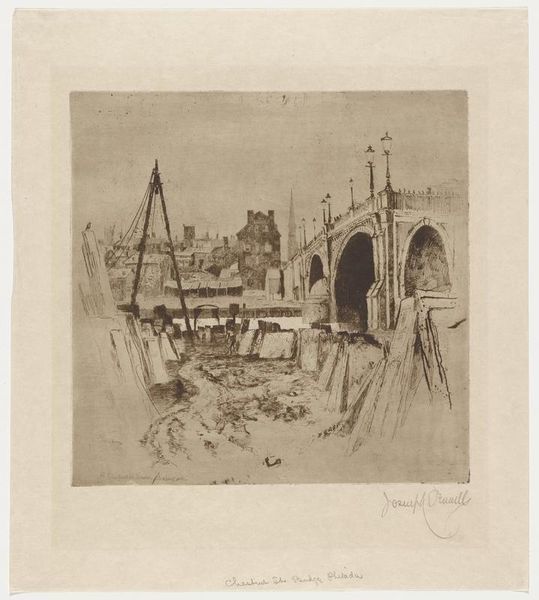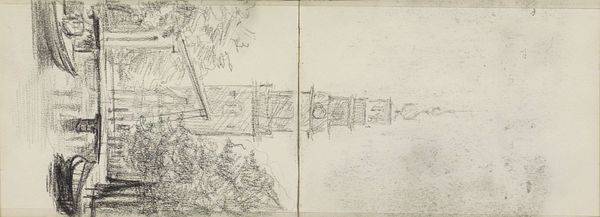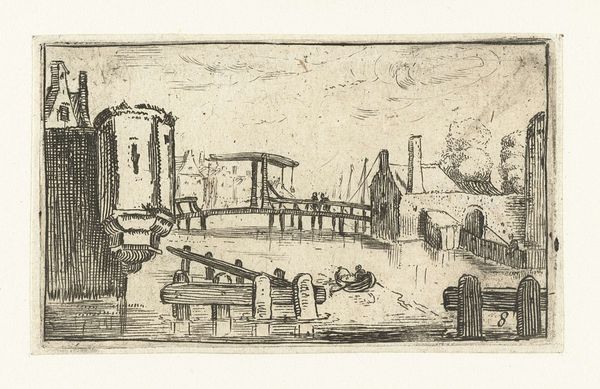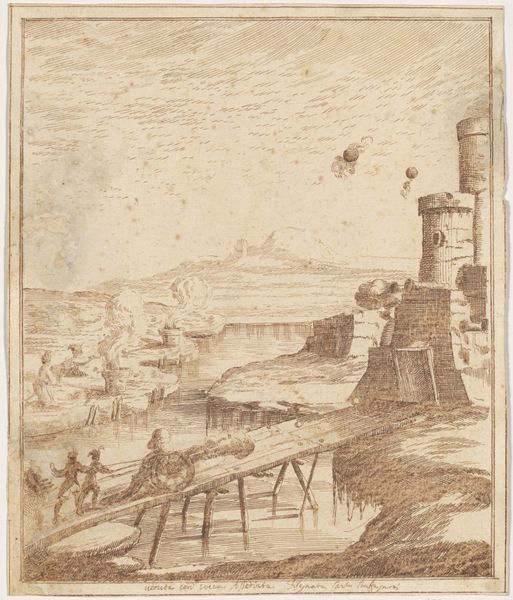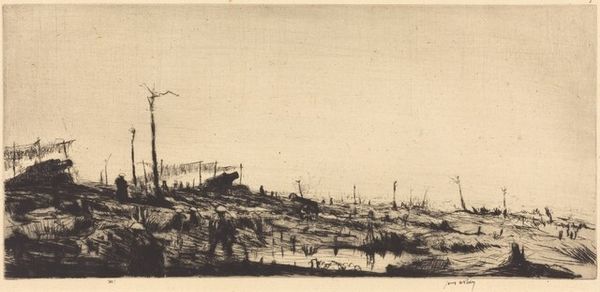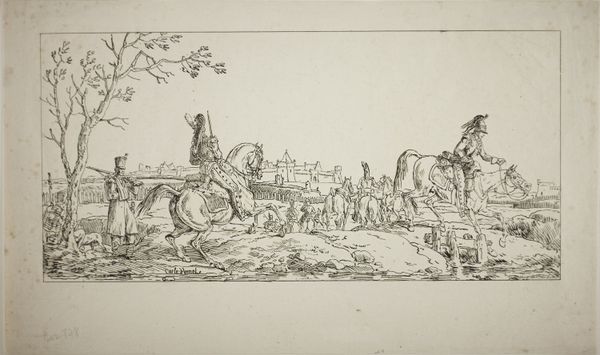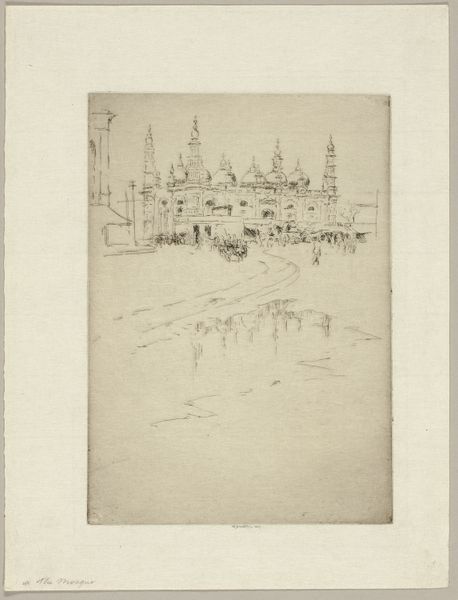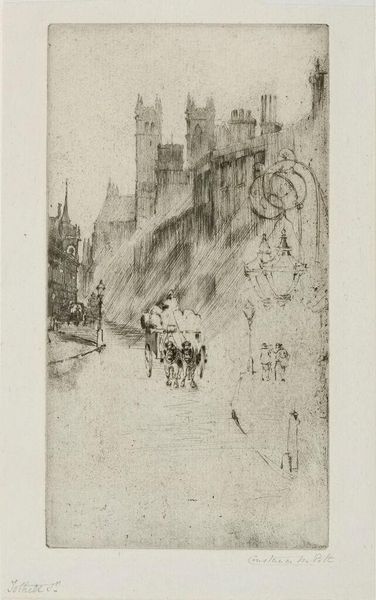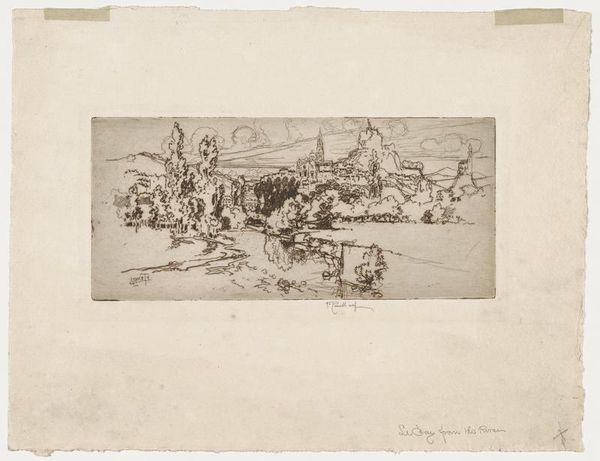
print, etching
# print
#
etching
#
landscape
#
etching
#
cityscape
#
modernism
Dimensions: 11 3/4 x 7 5/16 in. (29.85 x 18.57 cm) (plate)16 1/4 x 11 1/2 in. (41.28 x 29.21 cm) (sheet)
Copyright: No Copyright - United States
Editor: This is Joseph Pennell’s etching, "New York from New Jersey," created in 1915. The stark contrast between the industrial foreground and the distant, almost dreamy, cityscape feels really poignant. How do you interpret this work? Curator: Pennell’s work often reflects the rapid industrialization of the early 20th century, but through a critical lens. I see in this print not just a celebration of progress, but a commentary on its social and environmental costs. Note the prominent placement of the train tracks and factories; they almost seem to overshadow the skyscrapers. Editor: So, the artist isn’t simply admiring the skyline? Curator: Exactly. Consider who benefits from this "progress" and who bears the brunt of its consequences. The workers commuting, the pollution billowing – these are not neutral elements. Pennell is engaging with questions of power and social justice through his art. Do you notice anything about the composition that might reinforce this reading? Editor: Well, the viewpoint is from New Jersey, placing us, the viewers, somewhat outside of the gleaming towers of New York. Maybe it’s suggesting an outsider perspective? Curator: Precisely! This distance allows for a critical examination. Think about how urbanization often marginalizes certain communities. How does that reading change your view of the artwork? Editor: It makes me think about urban planning and how it shapes our lives, often unequally. I initially saw beauty in the skyline, but now I recognize the artist is pushing me to consider the implications behind that beauty. Curator: Yes, and by understanding this artwork’s social context, we can have a more nuanced conversation around issues that remain incredibly relevant today. Editor: I'll definitely look at Pennell's other works and those of his contemporaries, through this activist lens. Thank you!
Comments
No comments
Be the first to comment and join the conversation on the ultimate creative platform.
